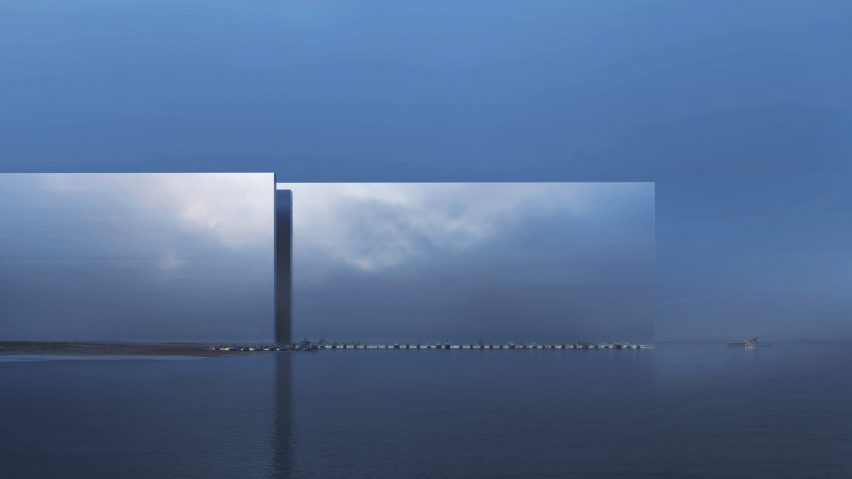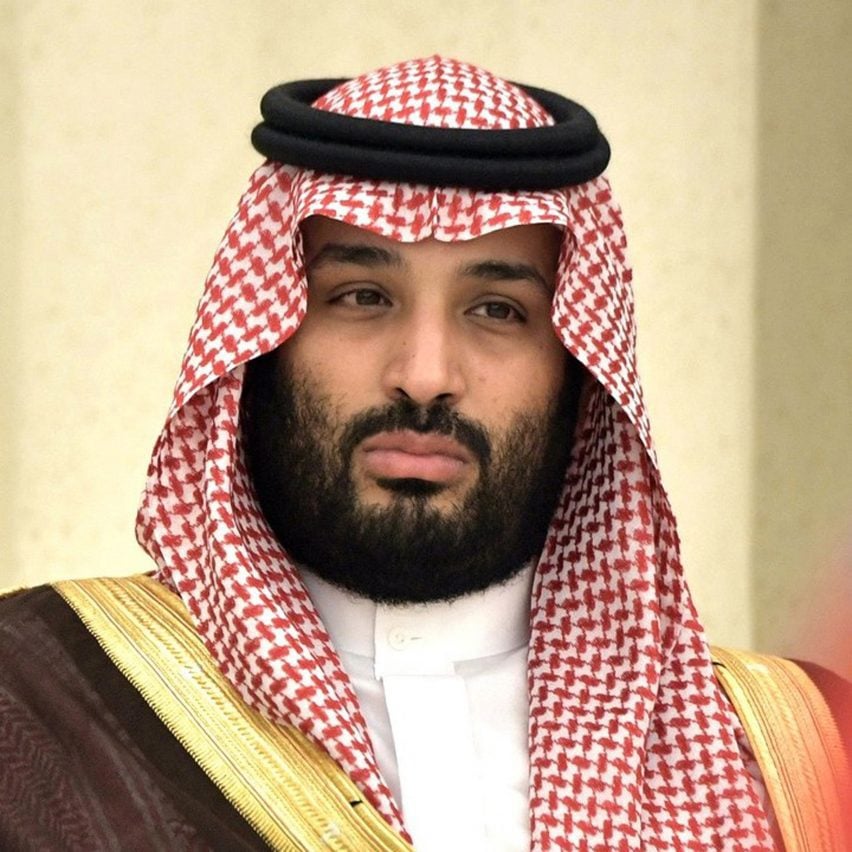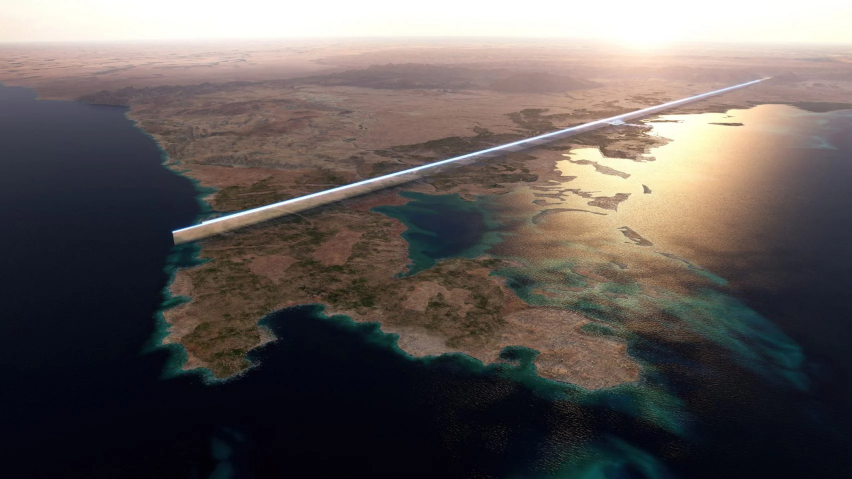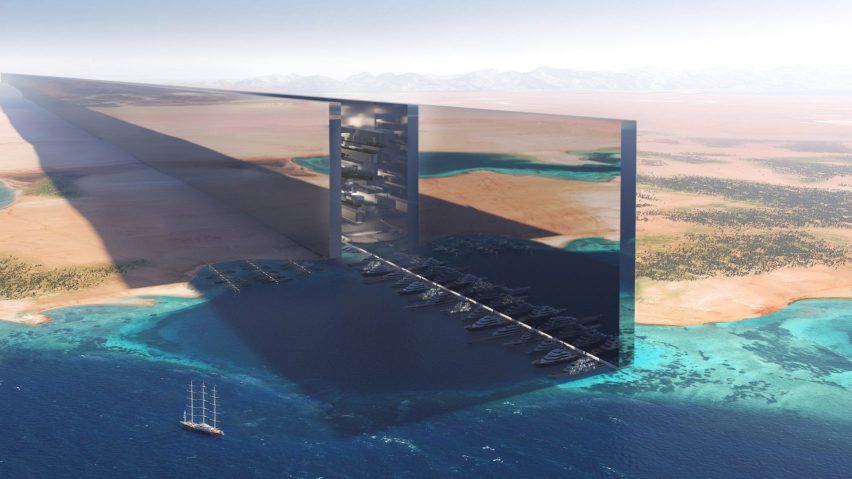
The Line will "keep proving" critics wrong says Saudi crown prince
Saudi Arabia's crown prince Mohammed bin Salman has dismissed scepticism of The Line and claimed personal involvement in the design of the mega city in a recent documentary.
Named The Line: Saudi Arabia's City of the Future in Neom, the Discovery Channel documentary features interviews with many of the Neom team and architects involved in the project as well as Saudi Arabia's crown prince Mohammed bin Salman.
Part of Mohammed bin Salman's wider Neom development, the crown prince claimed that the city's dual 170-kilometre-long skyscrapers were his concept and dismissed people's scepticism of the project.
"They say a lot of projects in Saudi Arabia can't be done, they're too ambitious," Mohammed bin Salman said in the documentary. "They can keep saying that and we can keep proving them wrong."

The mega city is set to be built in the northwest of the country in an area described by Mohammed bin Salman as "untouched". It is being bankrolled by the country's Public Investment Fund (PIF).
"We think about what kind of opportunity we have," said Mohammed bin Salman. "So we have the cash, we have the land, we have the stability, we have good infrastructure, we are G20 country."
Mohammed bin Salman claimed the city was necessary to house Saudi Arabia's growing population.
"The population is going to jump in Saudi Arabia from today 33 million, in 2030 something between 50 to 55 million," he said.
"In 2030, we will reach the full capacity of Saudi Arabia’s current infrastructure. That raises a very important question – that we need to create a new city."

For the city's design, he explained that they decided to start "from scratch" and had run design competition. While many respondents suggested traditional radial cities, one proposed a linear city.
"We brainstormed, we work with a team and we did a competition with the best designers on the whole planet," he explained. "All of them provide us with cities based on existing methods, but with better solutions. Except one, he takes that idea and says let's turn it from a circle to a line."
However, this initial proposal by US studio Morphosis suggested building a city in a strip that would be around two kilometres wide. Mohammed bin Salman explained how he personally suggested narrowing the city and extending upwards into two parallel, linear skyscrapers.
"When he presented the line it had the width of almost two kilos," he said. "My problem was that the infrastructure idea was good, but when you get in it you don't feel it"
"I told the team, how about we take the two kilos and we flip it to two towers and we flip it to the whole line," he continued. "Is that going to work?"

The Line is the largest of 10 regions being developed as part of the vast Neom project, which was the subject of a recent exhibition in Venice. Dezeen recently published an explainer of the project that outlines its major elements.
Despite much scepticism, footage released in October 2022 showed work commencing on The Line. In the documentary, Mohammed bin Salman described the plans as "very doable".
"We have the models now, we work on it, it sounds very doable, the idea is amazing," he said.
"It's massive. It's huge," he continued. "It's a project making money, it's a project absorbing demand that we assumed in Saudi Arabia, and it's something that creates the new way of building cities and a new way of living."
Along with being one of the world's largest projects, The Line is also one of the most controversial – although this is not mentioned in the documentary. It has been criticised by experts for its sustainability and liveability claims and has been under scrutiny for its human rights record.
Human rights organisation ALQST reported that three people who were forcibly evicted from the Neom site in 2020 have been sentenced to death. Early this year, UN Human Rights Council experts expressed "alarm" over the imminent executions.
Speaking to Dezeen, Amnesty International's Peter Frankental said that companies working on Neom were facing a "moral dilemma" and should "think twice" about their continuing involvement in the project.